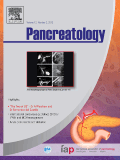
Pancreatology
Scope & Guideline
Pioneering Research for Metabolic Disorders
Introduction
Aims and Scopes
- Clinical Research on Pancreatic Diseases:
The journal publishes studies that investigate various aspects of pancreatic diseases, including clinical outcomes, treatment efficacy, and patient management strategies. - Translational Research and Biomarkers:
Research that aims to translate laboratory findings into clinical practice, particularly studies identifying biomarkers for early detection, prognosis, and treatment response in pancreatic cancer. - Innovative Surgical and Endoscopic Techniques:
Focus on new surgical approaches and endoscopic techniques for managing pancreatic conditions, including minimally invasive procedures and novel therapeutic interventions. - Pathophysiology and Molecular Mechanisms:
Investigations into the biological and molecular mechanisms underlying pancreatic diseases, including cancer biology, genetic factors, and the role of the immune system. - Epidemiology and Risk Factors:
Studies examining the epidemiological aspects of pancreatic diseases, identifying risk factors, and understanding the disease burden in various populations.
Trending and Emerging
- Machine Learning and AI Applications:
A notable increase in studies employing machine learning and AI to predict outcomes, improve diagnosis, and personalize treatment in pancreatic diseases, reflecting the integration of technology in medicine. - Personalized Medicine and Genetic Profiling:
Emerging research focuses on tailoring treatments based on genetic profiling of pancreatic tumors and individual patient characteristics, aiming to optimize therapeutic strategies. - Advanced Endoscopic Techniques:
Growing interest in novel endoscopic techniques for managing pancreatic conditions, including endoscopic ultrasound-guided interventions and their efficacy in various scenarios. - Impact of Nutrition and Lifestyle on Pancreatic Health:
An increasing number of studies examine the role of dietary habits, nutritional status, and lifestyle changes in the management and prevention of pancreatic diseases. - Inflammation and Immune Response in Pancreatic Diseases:
Emerging studies investigate the role of inflammation and the immune system in the pathogenesis of pancreatic diseases, highlighting potential therapeutic targets.
Declining or Waning
- Conventional Imaging Techniques:
There has been a noticeable decline in the publication of studies focusing solely on traditional imaging methods for diagnosing pancreatic conditions, as newer, more advanced techniques (like elastography and AI-assisted imaging) gain prominence. - Basic Science Studies without Clinical Application:
Research that does not directly translate to clinical practice or lacks immediate relevance to patient care appears to be decreasing, indicating a shift towards more clinically applicable research. - Non-Molecular Biomarkers:
The focus on traditional non-molecular biomarkers like CA19-9 is waning, as there is a growing interest in molecular and genetic biomarkers that offer more precise prognostic information. - History of Pancreatic Diseases:
Studies that provide retrospective accounts or historical analyses of pancreatic diseases have become less common, possibly due to a greater emphasis on current clinical practices and future directions.
Similar Journals
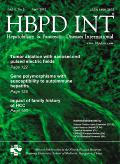
Hepatobiliary & Pancreatic Diseases International
Exploring breakthroughs in hepatobiliary and pancreatic disease management.Hepatobiliary & Pancreatic Diseases International, an esteemed journal published by Elsevier, stands as a vital resource within the field of gastroenterology and hepatology. Established in 2002, this journal has developed a significant reputation, currently ranked in the second quartile (Q2) in both categories as of 2023, showcasing its commitment to high-quality research and clinical studies. Based in Singapore, Hepatobiliary & Pancreatic Diseases International serves as an essential platform for researchers, clinicians, and healthcare professionals to share innovative findings, therapeutic approaches, and advancements in the understanding of hepatobiliary and pancreatic diseases. Although the journal does not currently offer Open Access, its rigorous peer-review process ensures that published articles maintain the highest scientific standards, fostering knowledge dissemination among the global research community. With a convergence period extending to 2024, this journal continues to play a pivotal role in enhancing the understanding and treatment of complex gastrointestinal conditions, making it a must-read for anyone engaged in this dynamic field.
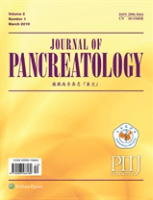
Journal of Pancreatology
Exploring the frontiers of endocrinology and metabolism.Journal of Pancreatology, published by Lippincott Williams & Wilkins, serves as a vital resource in the fields of Endocrinology, Diabetes and Metabolism, and Hepatology. This Open Access journal, established to disseminate cutting-edge research and advancements in pancreatic health, has witnessed a substantial rise since its inception in 2018, with converged publications spanning through 2024. Although currently ranked in the Q3 category across multiple disciplines, the journal continually seeks to elevate the discourse around pancreatic diseases and endocrine functions through high-quality articles and comprehensive studies. Researchers, professionals, and students alike will find valuable insights that can drive future investigations and clinical applications. The journal is accessible from anywhere in the world, ensuring that critical knowledge in this important field reaches a wide audience without barriers. Explore the Journal of Pancreatology to stay at the forefront of pancreatic research and contribute to meaningful developments in medical science.

Annals of Hepato-Biliary-Pancreatic Surgery
Shaping the Future of Hepato-Biliary-Pancreatic SurgeryAnnals of Hepato-Biliary-Pancreatic Surgery is a leading academic journal dedicated to the fields of hepatobiliary and pancreatic surgery, contributing essential research and clinical insights to enhance surgical practices and patient outcomes. Published by the Korean Association of Hepato-Biliary-Pancreatic Surgery (KAHBPS), this journal serves as a vital resource for researchers, clinicians, and healthcare professionals interested in the latest advancements and methodologies within this specialized area. With an ISSN of 2508-5778 and an E-ISSN of 2508-5859, the journal presents a platform for high-quality, peer-reviewed articles that focus on the management and surgical techniques for liver, biliary, and pancreatic disorders. Although it currently offers limited open access options, the journal has been recognized in the 2023 Scopus Ranks, reflecting its influence in the medical community, particularly with a Q3 designation in Gastroenterology and Surgery. By fostering academic dialogue, the Annals of Hepato-Biliary-Pancreatic Surgery plays a crucial role in shaping evidence-based practice, making it indispensable for those engaged in this dynamic and evolving field.

HPB
Championing excellence in multidisciplinary liver studies.HPB is a premier journal dedicated to advancing the fields of Gastroenterology and Hepatology, published by Elsevier Science Ltd. With an impressive impact factor reflective of its high-quality research output, HPB has earned its place as a Q1 journal in Gastroenterology and Q2 in Hepatology as of 2023. The journal, available in both print and electronic formats (ISSN: 1365-182X; E-ISSN: 1477-2574), serves as a vital platform for multidisciplinary research, encompassing clinical and experimental studies, aimed at improving patient care and outcomes related to liver and biliary diseases. Since its inception in 2000, HPB has published influential articles that have shaped practice and policy in the field. Located in the United Kingdom, at 125 London Wall, London EC2Y 5AS, the journal is poised to continue its mission of fostering innovation and collaboration among researchers, healthcare professionals, and academicians worldwide.
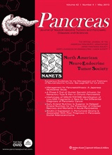
PANCREAS
Connecting professionals with cutting-edge findings.PANCREAS, published by Lippincott Williams & Wilkins, is a preeminent journal dedicated to advancing the field of endocrinology, diabetes, hepatology, and internal medicine. With an ISSN of 0885-3177 and E-ISSN of 1536-4828, this journal aims to disseminate high-quality research findings and clinical insights that are pivotal for professionals in these areas. The journal has established itself with an impressive Q2 ranking across multiple categories in the 2023 rankings, including endocrinology, diabetes and metabolism, hepatology, and internal medicine. Although it offers no open access options, the content is meticulously curated to enrich the knowledge base of researchers and practitioners. The Scopus rankings further underscore its influence, ranking #64 in Internal Medicine and #36 in Hepatology, reflecting its commitment to scholarly excellence. Based in the United States at Two Commerce Square, 2001 Market St, Philadelphia, PA 19103, PANCREAS serves as a central hub for innovative research from 1986 to 2024, making it an essential resource for those engaged in these rapidly evolving fields.

INTERNATIONAL JOURNAL OF COLORECTAL DISEASE
Exploring breakthroughs in gastrointestinal research.International Journal of Colorectal Disease is a prestigious peer-reviewed journal published by Springer that focuses on the evolving landscape of colorectal diseases. Established in 1986, this journal has served as a vital platform for researchers, healthcare professionals, and students to explore groundbreaking research, innovative treatment methodologies, and the latest advancements in gastroenterology. With an impressive impact factor and ranked in the Q2 category of gastroenterology by Scopus, it holds a prominent position in the academic community, currently occupying the 59th rank among 167 journals in the field, corresponding to the 64th percentile. Although it does not offer open access, the journal remains invaluable for those seeking in-depth analysis and comprehensive insights into colorectal health issues. As it continues through its convergence years until 2024, the International Journal of Colorectal Disease invites contributions that aim to bridge the gap between research and clinical practice, fostering a deeper understanding of colorectal disorders and enhancing patient care.

Tumori Journal
Bridging Research and Practice in Oncology.Tumori Journal is a distinguished publication in the field of oncology, dedicated to advancing the understanding and treatment of cancer since its inception in 1946. Published by SAGE Publications Ltd, this Italian journal serves as a pivotal platform for researchers, clinicians, and academicians to disseminate cutting-edge findings in cancer research and related areas of medicine. With an impressive record of contributions spanning multiple decades, Tumori Journal aims to foster collaboration and dialogue among professionals in the oncology community. Although classified in the Q4 category for Cancer Research and the Q3 category for both Medicine (miscellaneous) and Oncology as of 2023, the journal continues to draw interest with its rigorous peer-review process and commitment to quality. Researchers are encouraged to explore innovative methodologies and share impactful clinical insights through the journal, which also ranks within the top tiers of Scopus metrics for oncology and cancer research domains. With a growing emphasis on accessible research, Tumori Journal remains an essential resource in the continuous fight against cancer.

Chinese Journal of Cancer Research
Unveiling significant findings in the fight against cancer.Chinese Journal of Cancer Research, published by Chinese Journal Cancer Research Co, is a pivotal platform for disseminating significant findings in the field of oncology. Since its inception in 1988, the journal has provided a comprehensive forum for cancer research, featuring peer-reviewed articles that cover various aspects of cancer biology, prevention, diagnosis, and treatment. Although the journal's coverage is currently discontinued in Scopus and holds an HIndex that has not been specified, it is ranked in the 65th percentile in Medicine - Oncology and the 48th percentile in Biochemistry, Genetics and Molecular Biology - Cancer Research. This reflects its commitment to maintaining quality and relevance in the rapidly evolving field of cancer research. Researchers, professionals, and students are encouraged to explore its rich archive of studies and breakthroughs to enhance their understanding and further their research. For access, the publication remains instrumental for those invested in advancing the global fight against cancer.

ZENTRALBLATT FUR CHIRURGIE
Your Essential Resource for Surgical ExcellenceZentralblatt für Chirurgie is a pivotal journal in the realm of surgical medicine, serving as an essential resource for researchers, professionals, and students in the field. Published by Georg Thieme Verlag KG, this journal has been disseminating vital surgical research since its inception in 1947, fostering a robust dialogue among healthcare practitioners worldwide. While currently positioned in the Q4 quartile for both Medicine and Surgery in 2023, Zentralblatt für Chirurgie remains a valuable platform for disseminating innovative findings, case studies, and critical reviews that shape contemporary surgical practices. With a rich archive and a commitment to enhancing surgical knowledge, this journal is ideally suited for those seeking to stay abreast of current trends and developments within the medical landscape. Although it does not provide open access, its contents continue to be a crucial asset for institutions and professionals dedicated to surgical excellence.
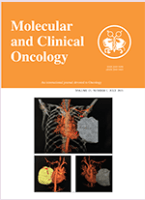
Molecular and Clinical Oncology
Empowering breakthroughs in cancer biology and treatment.Molecular and Clinical Oncology is a dynamic journal published by SPANDIDOS PUBL LTD, aimed at advancing the understanding of cancer biology and treatment modalities. With an ISSN of 2049-9450 and an E-ISSN of 2049-9469, the journal serves as a critical platform for researchers and clinicians dedicated to uncovering novel insights in molecular oncology and enhancing clinical practices. As a testament to its growing influence, the journal has achieved a Q3 ranking in Oncology and a Q4 ranking in Cancer Research for the year 2023, reflecting its commitment to publishing high-quality research. Although currently not an Open Access publication, the journal offers crucial subscription options, ensuring comprehensive access to groundbreaking studies and innovations in the field. With converged years spanning 2018 to 2024, the journal is set to continue enriching the academic community with its valuable contributions, ultimately empowering researchers, professionals, and students engaged in the fight against cancer.